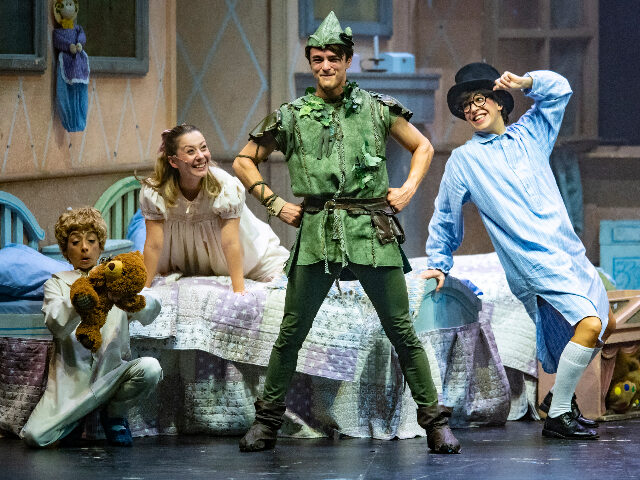A new stage production of the highly popular coming of age play Peter Pan will seek to eliminate some of the original songs for the Native American characters, to rewrite the scenes to offer Native Americans a “safe place,” and to cancel the “stereotypes” and “caricatures” of Native peoples.
The latest Broadway revival has hired Lakota playwright Larissa FastHorse to rewrite the book for the new touring production because, in her words, the original play by J.M. Barrie “had caused harm to people.”
“When you read the original material, it’s very hurtful, it’s blatantly hurtful. It says really — in character descriptions and things — really negative things toward the Native people,” FastHorse claimed, according to Yahoo Entertainment. “One of the base assumptions was just that, if Indians are there, we’re fighting them.”
With her overhaul in place, the new production directed by Lonny Price will open on Feb. 20 in Baltimore, and is set to tour the country until April of 2025 with songs such as “Ugg-a-Wugg” eliminated altogether.
Unlike past productions, the show will now feature a “stronger representation of Indigenous characters,” will hire Native actors to prevent white actors from perpetrating “red face,” and will “empower” Native peoples, Yahoo added.
“What script am I leaving behind?” FastHorse said of her thoughts on taking the job to rewrite the play to better represent Native Americans. “I’m making choices, not just based on one production on this tour, or the national tour, but I’m making choices based on the future, and making sure that things can be done for a long time by a lot of different folks.”
The original show presented the young Indian characters as generic representations of American Indians, and especially portrays the Tiger Lily character as overly sexualized. But FastHorse has refashioned the faux Native culture in the original to represent actual Native tribes that are now extinct.
“There were Indigenous people indigenous to everywhere on the planet, so each of them is the last of their culture, and they come to Neverland to preserve their culture until they can find a way back to this world because the Neverland is a place where you don’t grow old. So they can live forever and keep their culture alive,” FastHorse explained of her scheme for the characters.
“The magic of Neverland, a place where you never grow old, is a safe place where if I’m the last of my people, I can go there and save my culture and keep it alive,” FastHorse continued. “That’s a beautiful use of the magic of Neverland, as opposed to taking real people and turning them into magical beings when we’re actually people that are right here.”
FastHorse also blasted past attempts to soften the original play and celebrated the fact that this new production gave her a freehand to cut, rewrite, and reimagine the show.
“In the past, this has been rewritten at times and redone,” FastHorse crowed, “and they’ve always hired Native consultants, who, let’s be honest, don’t have any power in the room, and as the book writer, they very much have given me more power than the average book writer.”
Follow Warner Todd Huston on Facebook at: facebook.com/Warner.Todd.Huston, or Truth Social @WarnerToddHuston

COMMENTS
Please let us know if you're having issues with commenting.